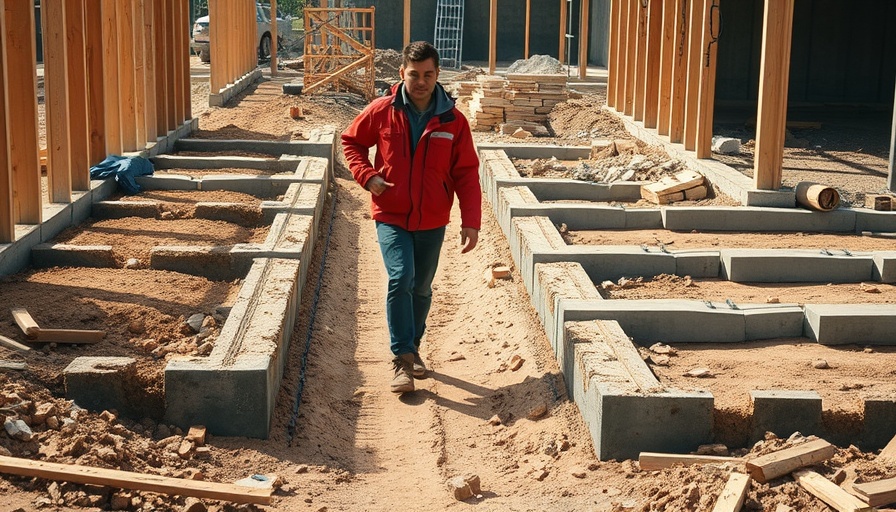
Rethinking Construction Efficiency: A Necessary Transition
In a world increasingly driven by deadlines and cost control, the construction industry often finds itself lagging behind other sectors in efficiency and project delivery. With reports showing that 98% of megaprojects encounter budget overruns exceeding 30%, it's apparent there is an urgent need for construction firms to adopt better methodologies and innovative strategies. As business owners, property developers, and facility managers, understanding how to optimize your construction processes can not only save money but also ensure that projects are completed on time, keeping your stakeholder satisfaction at its peak.
The Importance of Preliminary Planning
A successful construction project begins long before the first shovel breaks ground. Preparation is paramount. Not unlike shopping without a list leads to unproductive errands, arriving at a construction site without a detailed plan can lead to skyrocketing costs and inefficiencies. By investing adequate time in preliminary planning—defining the scope, estimating costs for materials, manpower, and equipment—you create a roadmap that leads to smoother operations. This not only facilitates efficient execution but also acts as a financial safeguard, making budget adherence more attainable.
Communication: The Foundation of Successful Projects
Effective communication cannot be overrated in the construction landscape. The absence of clear, ongoing dialogues between managers and on-site crews can result in confusion and inefficiencies. As managers, it’s your responsibility to maintain open lines of communication; your project supervisors are your eyes and ears. Establishing routine check-ins or feedback loops can illuminate potential issues early in the project lifecycle, allowing for proactive solutions that improve efficiency. Remember, what may seem trivial can lead to significant resource wastage.
Recognizing Performance and Rewarding Success
Incentivizing your crew can lead to remarkable benefits in construction efficiency. By establishing measurable performance benchmarks and offering financial bonuses when those metrics are met, you cultivate a culture of accountability and motivation. Consider rewarding field supervisors for completing tasks ahead of schedule or honoring teams that exhibit exemplary quality control. This simple yet effective acknowledgment can yield immediate dividends in both morale and productivity—a win-win in the construction world.
Investing in Employee Training
The importance of proper training cannot be overstated. When it comes to safety and operational efficiency, a well-trained workforce is critical. Statistics tell us that since OSHA’s inception, workplace fatalities have decreased dramatically—an achievement attributed to rigorous and effective training programs. Investing in safety training not only protects your employees but can also translate into smoother workflow, reduced downtime, and ultimately, higher project efficiency. Think of training as preventive maintenance; just as machinery requires regular upkeep, so do your team’s skills.
Embracing Technology for Future Efficiency
Lastly, as construction technology evolves, so should your approach to efficiency. Embracing innovation—be it project management software, construction drones, or automated reporting tools—can significantly streamline operations. These technologies can help you visualize project stages, better manage workflows, and refine resource allocation—all critical factors that enhance the profitability of construction projects. In today's fast-paced construction environment, maintaining competitiveness means leveraging technology to maximize project efficiency.
Conclusion: A Call to Action for Construction Leaders
As business leaders in the construction industry, it's time to adopt a new perspective on improve construction efficiency. By focusing on preparation, communication, performance recognition, training, and technology, we can facilitate a smoother project execution that meets time and budget expectations. The future of construction does not only lie in hard work but also in smart work. Start implementing these strategies today and lead your team towards greater efficiency and success in your projects.
 Add Row
Add Row  Add
Add 




Write A Comment